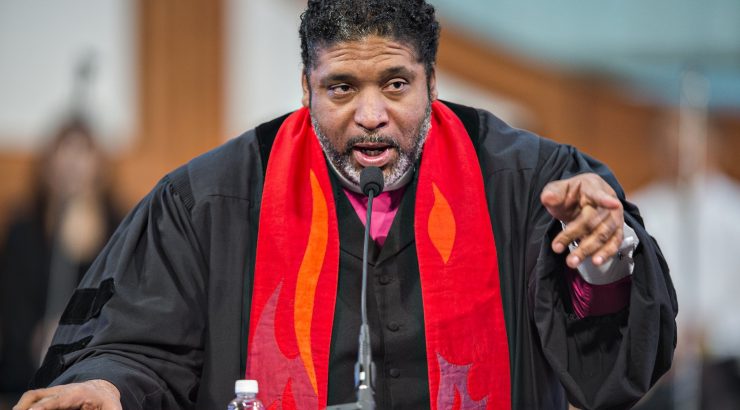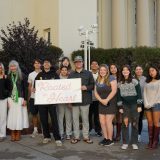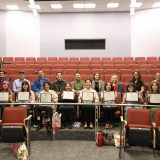
Reverend William J. Barber II Promotes Hope, not Hate
October 28, 2020
Reverend William J. Barber has hope for the future of American democracy, and little tolerance for defeatism, or for the news media that fuels it.
“We have got to stop excusing language that creates desperation,” said Barber. “[The media] talks about the 61 million people that voted for Trump, but they don’t talk about the 65 million that didn’t, and the hundred million that didn’t even vote…We don’t know what this democracy can do, because we have never seen 75 or 80 percent participation.”
In an event hosted last Thursday by Wilkinson College and The Fish Interfaith Center as a part of Wilkinson’s Engaging the World: Leading the Conversation on the Significance of Race initiative, Rev. Barber impressed upon over 200 virtual attendees the magnitude of systemic racism and systemic poverty in our nation and the problem of voter suppression, and the urgent need for people to assemble against these interlocking evils.
“[I]n the midst of all this pain—the pain that’s pushed us together in ways we can no longer be separate—we have got to fight together.”
It is hope, fiercely coupled with the need for political agitation that rests at the center of Rev. Barber’s message.
“We are the people we’ve been looking for,” he said. “The rejected—if you’ve been rejected because of your sexuality, rejected because of your race or class, rejected because of your national citizenship status, rejected because you’re indigenous, rejected because of your lack of health care—however you have been rejected, if all the rejected get together, we are called to be a movement. And we are called to be a movement right now.”
As co-chair of the Poor People’s Campaign: A National Call for Moral Revival, an organization that asks people to do M.O.R.E—mobilize, organize, register, and educate people to vote—Rev. Barber is extremely familiar with this fight, and expressed the urgency behind it in his speech. As he explained, in 2013 the Supreme Court “gutted the Voting Rights Act of 1965” by a 5-to-4 vote, freeing nine states, mostly in the South, to change their election laws without advance federal approval. Consequently, today, there are 886 fewer voting precincts in Black and brown communities, and 25 states have passed laws that create additional hurdles to voting.
“This is the election hacking that no one wants to talk about.”
Barber views systemic racism and systemic poverty that affects white, brown, and Black communities as a hatred for democracy and a hatred for humanity. “Much of what we see today are the roots of what was sown yesterday,” Barber said. “The Trump Presidency did not create America’s racial divide, it explored its tactics that were developed alongside the racist policies and ideas that emerged with American slavery and continued through Jim Crow and through the southern strategy up until today.”
Rev. Barber described America’s current political divide as a result of “tinkering around in the laboratory of racism and classism.” Though he knows that the forces of injustice are at work in this nation, he does not think that those forces are winning. In fact, he contends that the continuation of unconscionable actions “may be the necessary link in the chain of events preparatory to the complete overthrow of division in this country.” They have created their own demise, he said, “because pride comes before destruction.”
“So, am I optimistic?” Barber asked his audience. “No. I am hopeful. Why? Because hope comes out of despair, it doesn’t grow around it. Hope sees possibility, even while you’re crying. And hope is the kind of thing, that when you try to put it out, it only serves to increase, intensify, and embolden our agitation.”
Would you like to hear more of this discussion? Watch the Zoom recording here.

